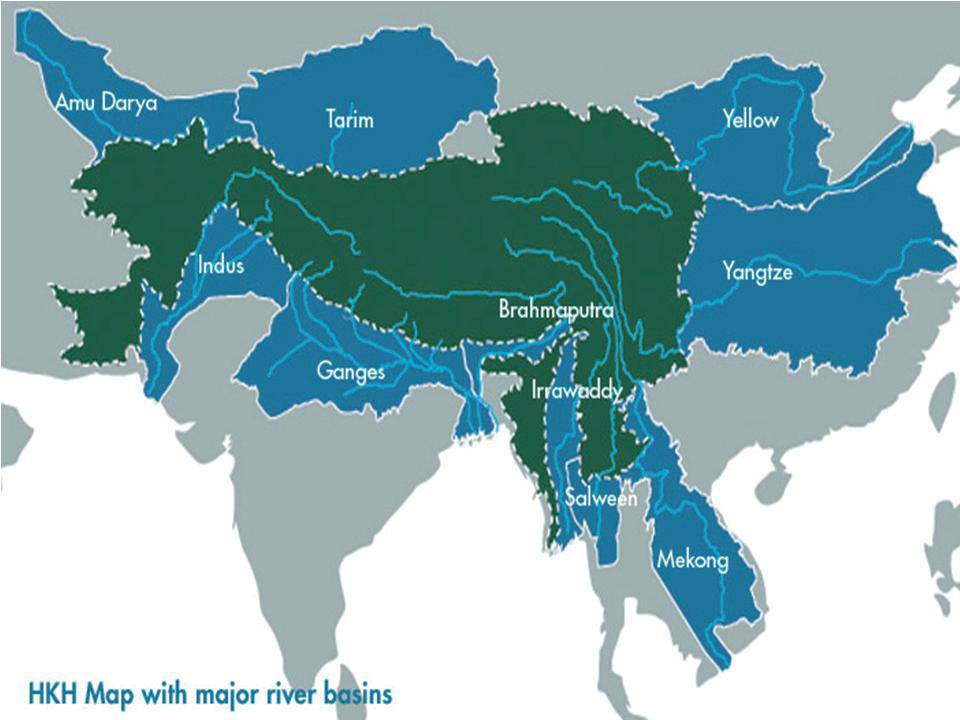Jayanta Bandyopadhyay
River basin governance: Learnings from Cauvery conflict
Posted on 15 Feb, 2019 01:38 PMThe river Cauvery—an inter-state river shared by the southern states of Karnataka, Kerala and Tamil Nadu, as well as the Union Territory of Pondicherry—has often been in the news for the fight over its waters between Karnataka and Tamil Nadu. What dominates the issue is the conflicting demands for irrigation from the plateau region of Karnataka and the delta region in Tamil Nadu.

Water sharing: Beyond economic concerns
Posted on 15 Nov, 2016 11:49 AMThe Ganges-Brahmaputra-Meghna (GBM) basin is the third largest river flow system in the world with an annual runoff about 1,150 billion cubic meters (BCM) and the peak outflow of 1,41,000 cumecs.

Restructuring water governance for future
Posted on 02 Jun, 2016 12:40 PMWith increasing concern over water security, water governance worldwide is undergoing a gradual change.

Studying climate change in India- A book review in Economic and Political Weekly
Posted on 12 Jan, 2013 10:44 PMThis article in Economic and Political Weekly is a review of the edited book Handbook of Climate Change and India: Development, Politics and Governance by Navroz Dubash. The author of the article states that the book is an important addition to the body of knowledge on the subject of climate change. The articles in the book are written from diverse view points by authors who are activists, researchers, diplomats, policymakers, and politicians.
Water science in India - Hydrological obscurantism - A paper in Economic and Political Weekly
Posted on 07 May, 2012 12:15 PMThis article by Jayanta Bandyopadhyay in the Economic and Political Weekly deals with the Government of India’s proposal for addressing the twin problems of floods and water scarcity by interlinking rivers.
"In search of old ideas" - A discussion of the draft national water policy 2012, by Jayanta Bandopadhyay in The Telegraph
Posted on 22 Feb, 2012 05:05 PMAuthor: Jayanta Bandopadhyay
Article and image courtesy: The Telegraph
Shades of blue: A symposium on emerging conflicts and challenges around water - Seminar magazine
Posted on 10 Jan, 2012 07:53 PM(as posed by Sunjoy Joshi, Director and Distinguished Fellow, Observer Research Foundation, Delhi)
Interdisciplinary approach to water management: From the uplands to the coast - The Ganges-Brahmaputra-Meghna Basin
Posted on 30 Dec, 2011 11:04 AMIn this paper, Jayanta Bandopadhyay explains the need for an interdiscipliinary framework for water resource management. He states that this framework needs to include ecological, social, economic and institutional perspectives. These perspectives are essential to facilitate cooperation over the management of transboundary rivers.

Deciphering environmental flows - An article in Seminar magazine - Jayanta Bandyopadhyay
Posted on 30 Oct, 2011 10:45 AMAuthor: Jayanta Bandyopadhyay
This article published in the Seminar 626, October 2011 argues that our current state of knowledge of water systems and ecological modelling related to flows of water, which includes projecting a single quantitative figure of water requirements, is inadequate. Such a unilateral prescription of environmental flows or water requirements of aquatic systems as a method for the resolution of water conflicts may actually become the source of many new conflicts.
Dams on Himalayan rivers: How good is the science?
Posted on 08 Jun, 2010 05:38 PMThis brief article by Prof Jayanta Bandyopadhyay in the May 16-31 2010 issue of Business Economics magazine, highlights the recent plans of the central and state goverments of constructing a large number of dams on Himalayan rivers. Environmentalists continue to consistently argue against the construction of dams that are built without respect for ecological sciences and warn that this could lead to increase in disasters in the fragile Himalayan region.